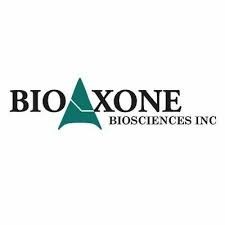BioAxone BioSciences Announces Notice of Allowance for Self-Delivering RNA Interference for the Treatment of Spinal Cord Injury
BioAxone BioSciences Announces Notice of Allowance for Self-Delivering RNA Interference for the Treatment of Spinal Cord Injury
Issued claims relate to transient PTEN suppression for nerve regeneration
BOSTON--(BUSINESS WIRE)--BioAxone BioSciences, Inc., a biotechnology company applying an innovative understanding of axon regeneration and neuronal signaling to transform the lives of patients afflicted with neurotrauma or neurovascular disorders, today announced that it has received a Notice of Allowance from the United States Patent and Trademark Office (USPTO). The notice covers the critical patent application (US 16/321,229) for the proprietary method of treatment of spinal cord injury with BA-434, a novel sd-rxRNA compound that targets transient, non-permanent PTEN suppression to promote axon regeneration and reduce paralysis.
Scientists have provided evidence that suppression of the protein PTEN is one of the most robust targets to promote regeneration of damaged axons. PTEN is also important in surveillance and defense against unwanted cell growth, including protection from cancer. However, until now the development of inhibitors to promote axon regeneration have focused on methods that permanently silence PTEN.
“BA-434 is a therapeutically relevant drug candidate that overcomes the challenge of other PTEN inhibitors which deliver permanent suppression,“ said Lisa McKerracher, PhD, CEO, BioAxone BioSciences. “Our drug candidate delivers transient PTEN suppression that is robust in the model systems used in preclinical testing. We look forward to continued exploration of the opportunity to allow for axon regeneration to help serve this unmet need of patients with spinal cord injury.”
BA-434 is BioAxone’s novel self-delivering RNA interference compound that reduces expression of PTEN, a protein that blocks axon regeneration in adult neurons. Research for development of BA-434 was supported by NIH Small Business Innovation Research grants.
About BioAxone BioSciences, Inc.
Based in Boston, BioAxone BioSciences is applying its deep understanding of axon regeneration and neuronal signaling pathways to transform the lives of patients afflicted with neurotrauma or neurovascular disorders. Leveraging 20 years of pioneering research in axon regeneration and diseases involving Rho/ROCK signaling, BioAxone has a clinical stage drug (BA-210) and a preclinical program (BA-434) targeting axon regeneration for treatment of spinal cord injury. BA-1049, intended for license, is the lead orally-available ROCK2 inhibitor to restore endothelial cell barrier function in cavernous angioma (CA) and cerebral aneurysms. Cavernous angioma, which has both spontaneous and genetic forms, and cerebral aneurysms, are considered unmet medical needs with no pharmacological treatment options currently available for patients. For more information, visit www.bioaxonebio.com.
Contacts
Beth Kurth
Conway Communications
617-584-9650
